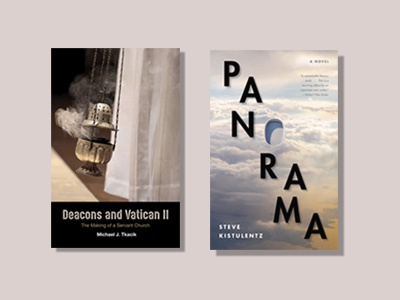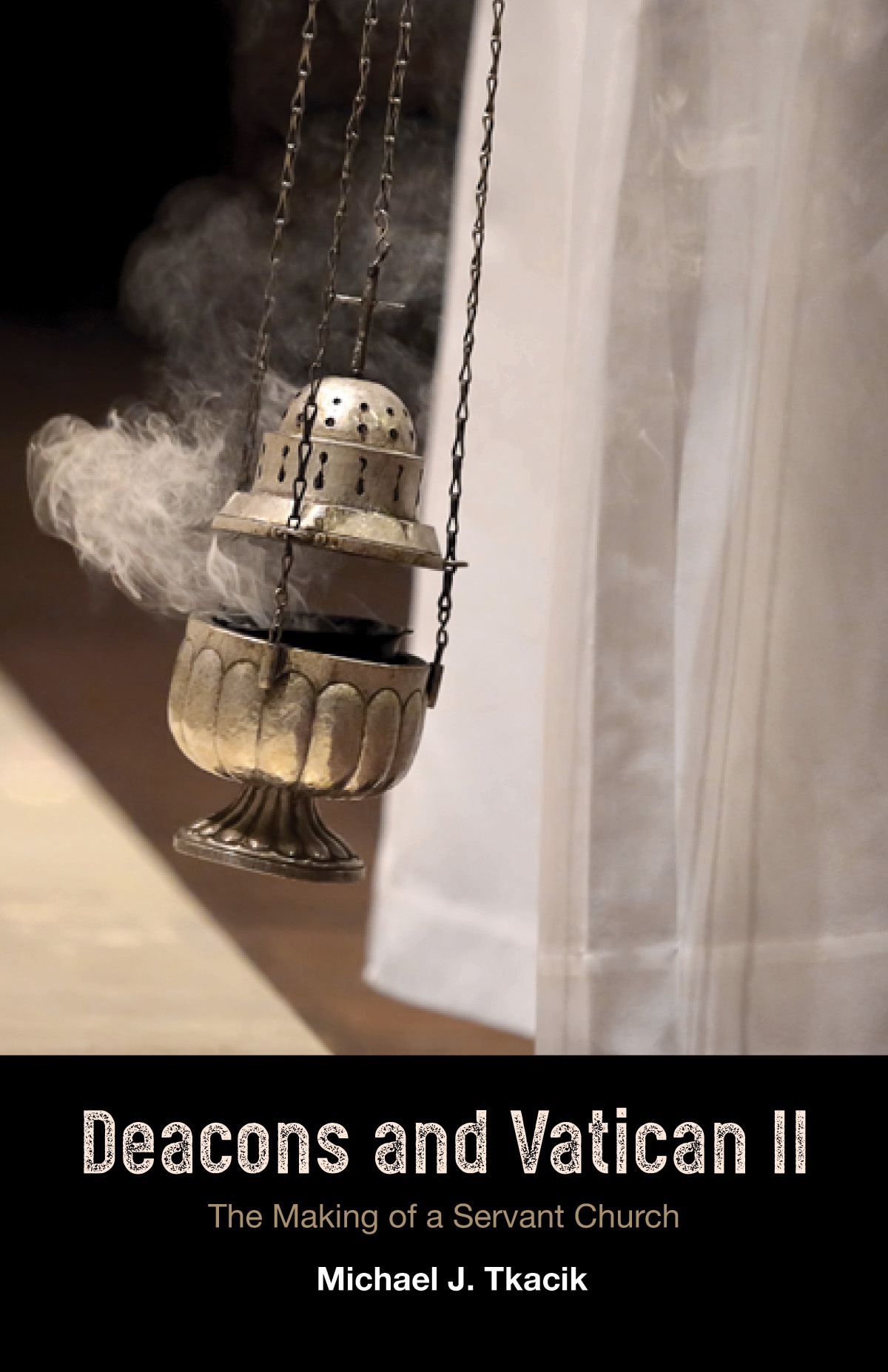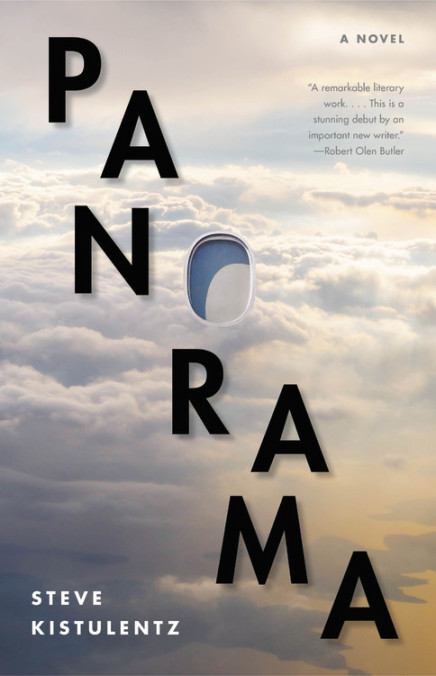Book News from the College of Arts and Sciences Faculty Members
A nonfiction work explains why deacons are so important in the Catholic Church now and a novel by a teacher-author at Saint Leo University has been nominated for a literary honor.

A nonfiction work explains why deacons are so important in the Catholic Church now and a novel by a teacher-author at Saint Leo University has been nominated for a literary honor.

 Theologian Michael J. Tkacik, PhD, has written Deacons and Vatican II: The Making of a Servant Church, published by Wipf and Stock Publishers. It will be an important book for graduate-level students, priests, bishops, deacons, and others interested in the way the modern Catholic Church can communicate its messages and ministry through the involvement of deacons. Not everyone in the Catholic Church is familiar with permanent deacons, but they are an ordained group of male clergy (they can be married if they come to the office as family men and are not eventually planning on becoming priests). Deacons help the bishop of each diocese care for the faithful in a number of ways such as teaching the Gospel, presiding at forms of community prayer, playing a role during certain parts of Mass, and performing acts of community and pastoral service. There has been a resurgence of the role of deacon in some areas, and Saint Leo University is helping several Catholic dioceses prepare men (and their wives if they are interested) for the diaconate by offering the Master of Arts in theology program to these couples. This gives the deacon-candidates the academic background they need; deacons continue to hold jobs in their regular occupations while serving the Catholic Church, and it is not unusual for them to have been trained in fields other than theology.
Theologian Michael J. Tkacik, PhD, has written Deacons and Vatican II: The Making of a Servant Church, published by Wipf and Stock Publishers. It will be an important book for graduate-level students, priests, bishops, deacons, and others interested in the way the modern Catholic Church can communicate its messages and ministry through the involvement of deacons. Not everyone in the Catholic Church is familiar with permanent deacons, but they are an ordained group of male clergy (they can be married if they come to the office as family men and are not eventually planning on becoming priests). Deacons help the bishop of each diocese care for the faithful in a number of ways such as teaching the Gospel, presiding at forms of community prayer, playing a role during certain parts of Mass, and performing acts of community and pastoral service. There has been a resurgence of the role of deacon in some areas, and Saint Leo University is helping several Catholic dioceses prepare men (and their wives if they are interested) for the diaconate by offering the Master of Arts in theology program to these couples. This gives the deacon-candidates the academic background they need; deacons continue to hold jobs in their regular occupations while serving the Catholic Church, and it is not unusual for them to have been trained in fields other than theology.
Tkacik said he has grown very appreciative of the work the dioceses, the deacon-candidates and their wives have committed to, and he wanted to elaborate on the role they play and contributions they can make in the life of the modern Catholic Church. He also enjoys writing about the Second Vatican Council and its work in creating Vatican II, the set of philosophies and rules set from late 1963 to late 1965 that establishes the practices of the modern Church. Because of Vatican II, for instance, worship was revised to convey to parishioners more clearly what is said and what occurs during Mass, and the Church rejected anti-Semitism and discrimination based on race, color, or religion. Lay people are asked to act as a good influence by following Christ's teachings, and missionary activity is expected to help people socially and economically but should not force faith on anyone. Many other important decisions were adopted under Vatican II as well, making the topic broad and deep enough to merit substantial reading. And Tkacik found specific points of intersection between the work of modern deacons and changes brought about by Vatican II.
 "Deacons are uniquely positioned within the church to advance some of the reforms championed by the council," Tkacik said, so he decided to explore the potential in a book. In addition to helping lay Catholics better understand the teachings of their faith, Tkacik said he believes deacons can help create and maintain dialogue between religions, and promote peace, as well as human dignity.
"Deacons are uniquely positioned within the church to advance some of the reforms championed by the council," Tkacik said, so he decided to explore the potential in a book. In addition to helping lay Catholics better understand the teachings of their faith, Tkacik said he believes deacons can help create and maintain dialogue between religions, and promote peace, as well as human dignity.
Another faculty member also is receiving notice for a substantial work: Steve Kistulentz, PhD, the director of the Master of Arts program in creative writing. His first books were poetry collections, which were followed earlier this year by the release of his first novel, Panorama, in March 2018 by Little, Brown and Co.
The author-teacher learned in July that Panorama is among nine works nominated for the Crook's Corner Book Prize, from a foundation of the same name based in Chapel Hill, NC. The prize was established to honor the best debut novel set in the American South. In Panorama, Kistulentz writes about the effects of a dramatic plane crash in Dallas on a victim's family and others. A key character lives in Washington, DC The winner of the $5,000 prize will be announced in January.